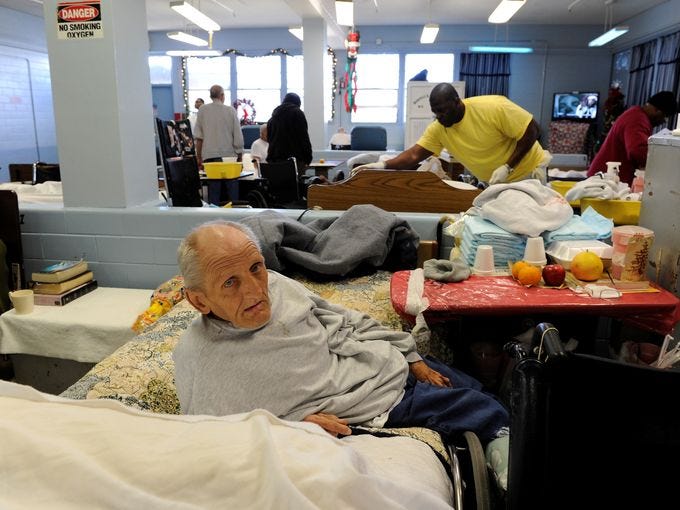This 'national epidemic' includes packed prisons, high-cost medical care and dwindling resources. This all begs the question: Should frail, incapacitated inmates be there?
For decades, the Louisiana State Penitentiary has taken great pride in its vast farming operations, as well as its reputation as one of the toughest lockups in America.
The crops and cattle raised by prisoners on the remote 18,000 acres ringed by razor wire have long gone to feed Angola's 5,000 inmates, with enough left over to stock the novelty hot sauce and jelly products sold in the prison museum.
Yet Warden Burl Cain said something is happening on "the farm" that threatens the bounty it reaps every year.
Aging, sick and disabled prisoners are seriously limiting the numbers that can be deployed to tend the land. Of the 1,000 who typically work the fields, Cain said he's lucky if 600 to 700 are physically able to do the job. After all, a third of all inmates are older than 50, and many are so debilitated that the state spends north of $100,000 per inmate to care for them.
"This place was not built to accommodate people like this," Cain said. "I'm telling you, we're really feeling it."
So are the rest of America's vast, aging prison populations.Read the rest of the story HERE and view a related video below:
They need to stay incarcerated. It's going to cost us either way, so if I'm paying, I want them locked up. If we mean, "Life without Parole" it's assumed you're going to get old.
If they are released, they'll only end up on the public dole with taxpayer funded healthcare and long term care. Either way, WE PAY.
If you like what you see, please "Like" us on Facebook either here or here.
Please follow us on Twitter here.
Please follow us on Twitter here.



No comments:
Post a Comment